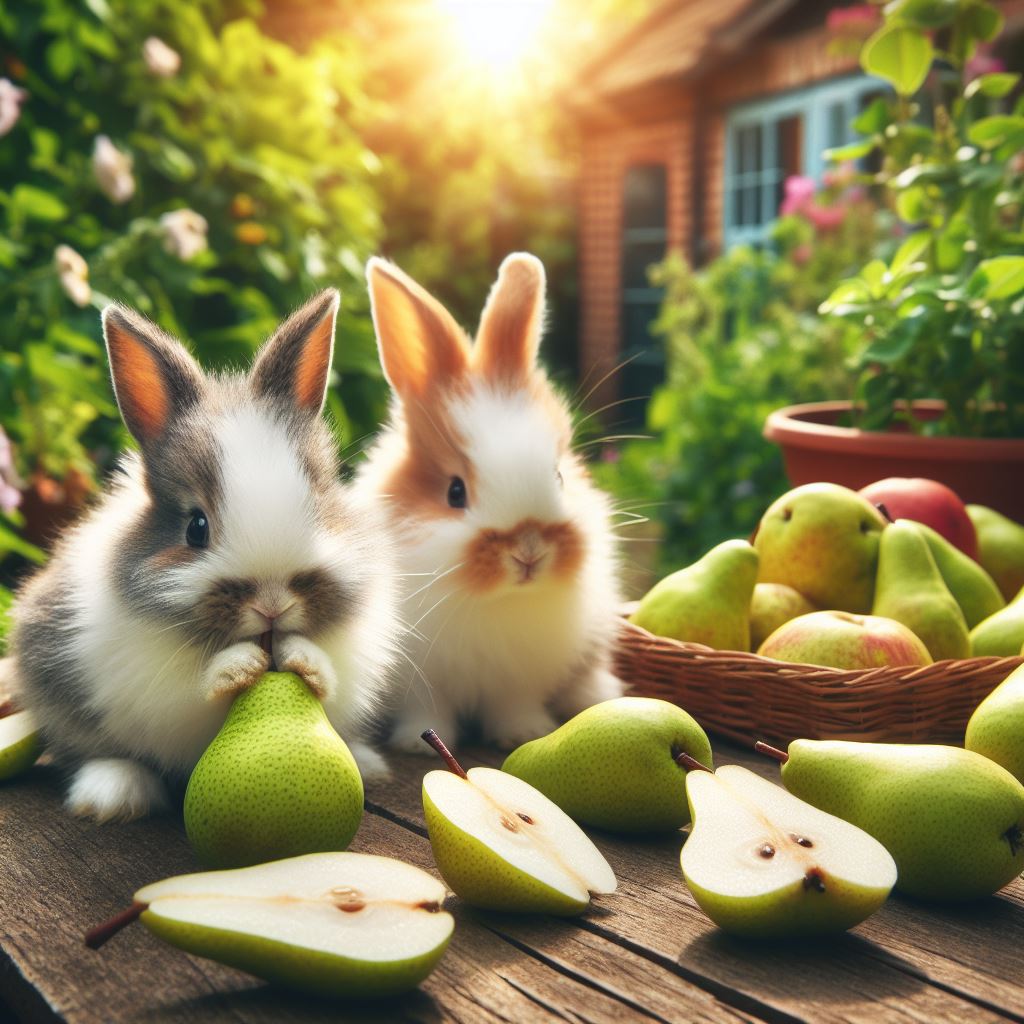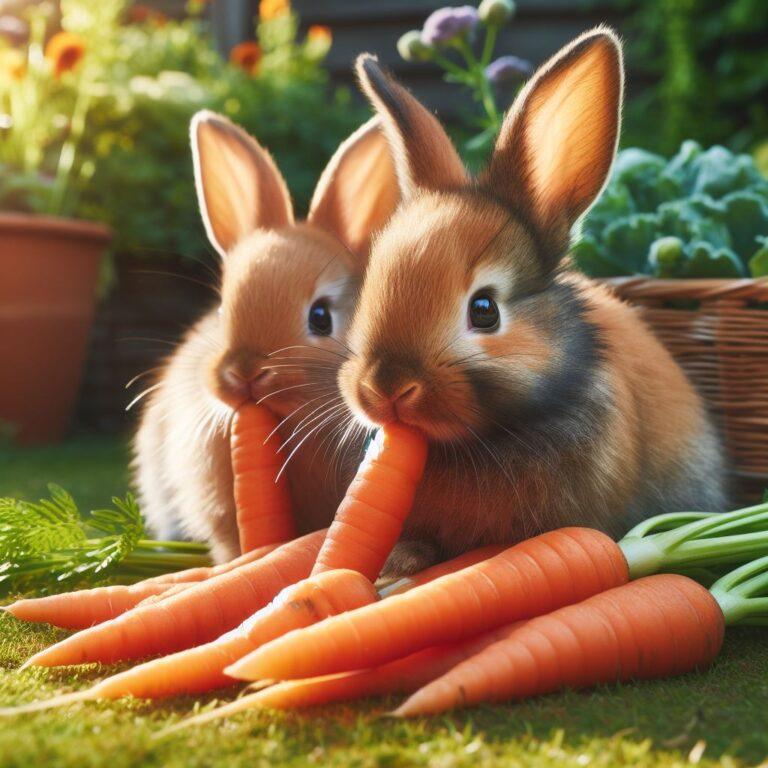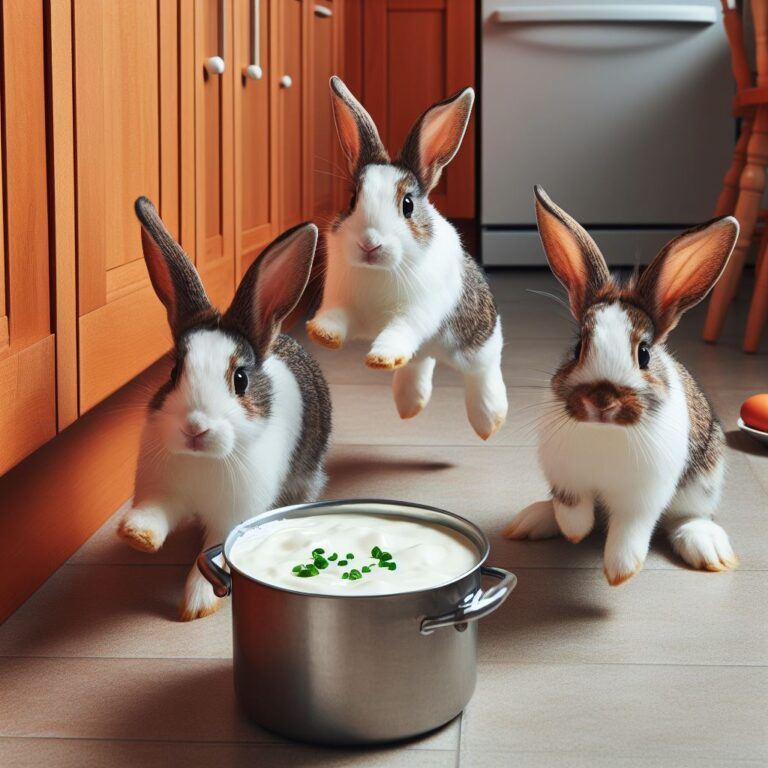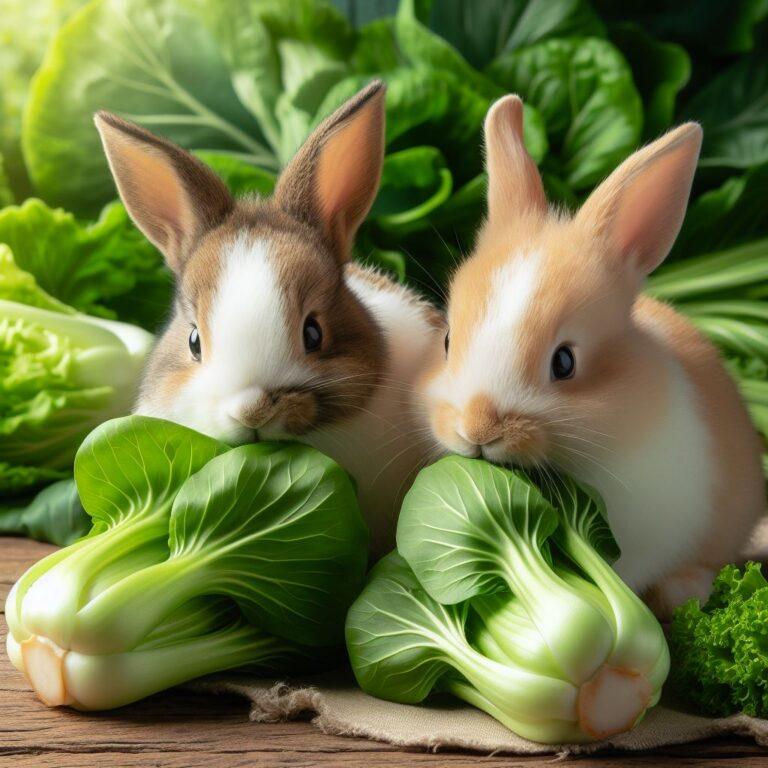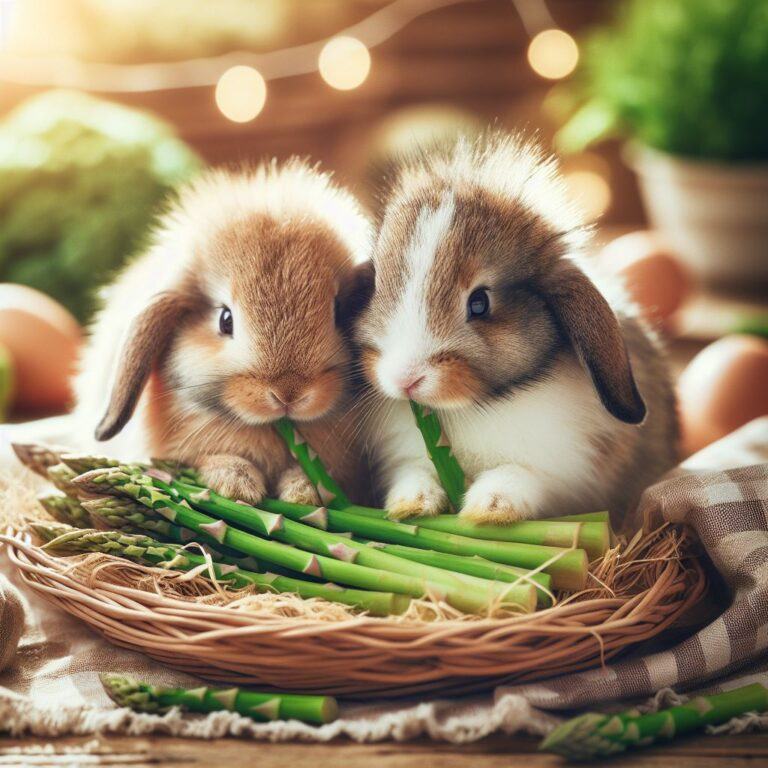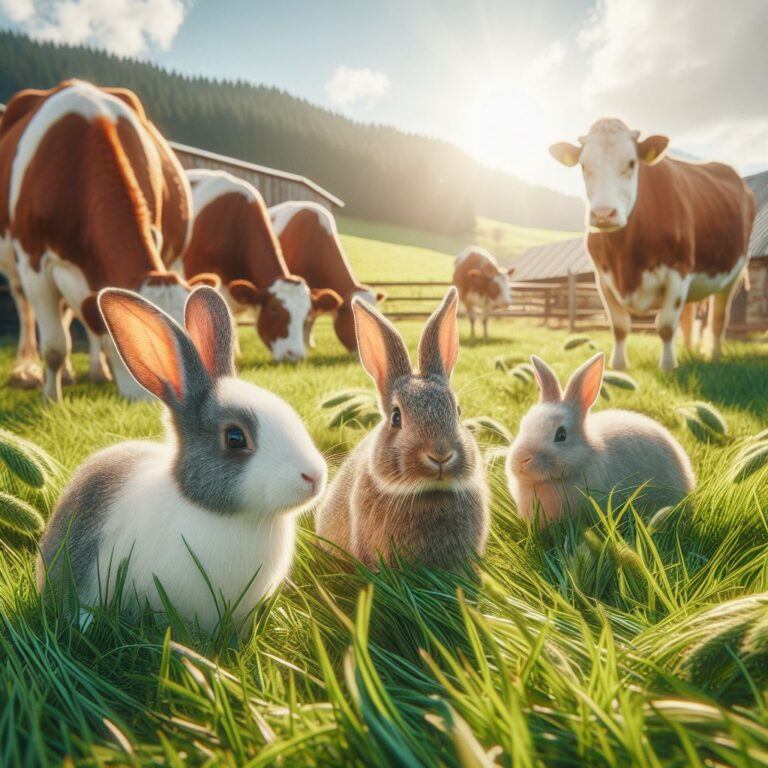Can Rabbits Safely Eat Pears
Yes, rabbits can eat pears as part of their diet, they contain essential vitamins such as C and K and also dietary fiber. But they are also high in sugar and like apples their core and seeds can be dangerous if ingested so I would always recommend care when feeding pears to our bunnies.
Nutritional Benefits and Potential Risks of Pears For Rabbits
Full of vitamins such as vitamin C, which supports the immune system, and vitamin K, which plays a role in blood clotting and bone health. Pears also provide dietary fiber, which aids in digestion and helps prevent gastrointestinal issues in rabbits.
Additionally, the natural sweetness of pears can make them a tasty treat for our furry friends.
While pears offer some nutritional benefits, it’s important to be aware of the potential risks associated with feeding them to rabbits.
A main concern is the sugar content in pears. While rabbits can enjoy fruits in moderation, including pears, too much sugar can lead to obesity, dental, and digestive problems.
So it’s essential to offer pears as an occasional treat and monitor your rabbit’s overall sugar intake from all sources.
Another risk to consider is the presence of seeds and cores in pears. Similar to apples, pear seeds contain compounds that can be harmful to rabbits if ingested in large quantities.
Therefore, removing seeds and core before offering pears to your furry friend is crucial to prevent any potential toxicity or choking hazards.
Portion Control and Moderation
As with all treats, moderation is key when it comes to feeding pears to rabbits. While it may be tempting to indulge our furry friends with sweet treats, including pears, too much can have adverse effects on their health.
Treats, including fruits like pears, should make up no more than 5-10% of a rabbit’s total daily diet. This makes sure that they receive the majority of their nutrition from fresh vegetables like cabbage, spinach, green beans, or broccoli greens and of course, high-quality hay, which is essential for their overall well-being.
When offering pears start with small portions and observe their reaction. Some rabbits may have allergies or sensitivities to certain foods, including pears, so it’s essential to introduce new treats gradually and monitor for any signs of digestive discomfort or adverse reactions.
Best Practices for Serving Pears to Rabbits
- Choose the Right Pears: Opt for organic pears whenever possible to minimize exposure to pesticides and chemicals. Wash the pears thoroughly under running water to remove any dirt or residue before offering them to your rabbit.
- Preparation: Before serving pears to your rabbit, it’s essential to prepare them properly. Wash the pears thoroughly to remove any pesticides or wax coatings on the skin. Peel the pears to eliminate any potential pesticide residue or wax, as rabbits can be sensitive to these substances. Finally, remove the seeds and core, as these parts can pose choking hazards and contain potentially harmful compounds.
- Offer in Moderation: While pears can be a tasty and nutritious treat for rabbits, it’s essential to offer them in moderation. Too much fruit in a rabbit’s diet can lead to digestive upset, obesity, and other health issues. As mentioned earlier, treats, including pears, should make up no more than 5-10% of a rabbit’s total daily diet.
- Monitor for Allergic Reactions: After introducing pears to your rabbit’s diet, monitor them closely for any signs of allergic reactions or digestive discomfort. Some rabbits may be sensitive to certain foods, including pears, so it’s essential to observe their behavior and adjust their diet accordingly if necessary.
- Variety: While pears can be a tasty treat for rabbits, it’s important to offer a variety of fruits and vegetables to ensure they receive a balanced diet. Consider rotating their treats to provide them with different flavors and nutrients.
Rabbits can safely eat pears as part of a balanced diet. By understanding the nutritional benefits and potential risks, you can ensure that your furry friend enjoys pears safely and responsibly.
Remember to always consult with your veterinarian when introducing any new foods into your beloved pet’s diet, as they always know best!

